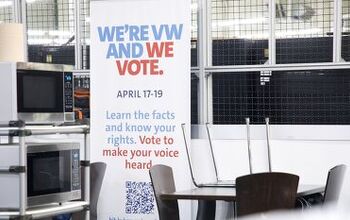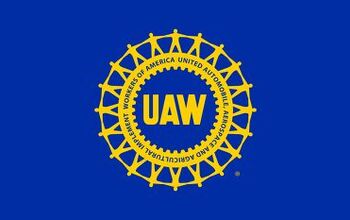Trade Peace Watch: US-Korean Trade Pact: Korea (And U.S. Customers) In Deep Kimchi

It looks like North Korea’s artillery barrage on a small South Korean island had one of those famous unintended consequences: South Korea, faced by a belligerent enemy, decided to let bygones be bygones. A shell-shocked South Korea and a proud America “completed a free-trade agreement that will eliminate most tariffs on exports and solidify one of the nation’s most significant alliances in Asia,” as the New York Times praises the deal. South Korea stared down the barrels of North Korean guns, and America won the war that never was.
Don’t run down to your Hyundai dealer just yet and expect dramatic price reductions. The deal has major hurdles to pass. And at closer inspection, it looks like an oinking pig in a poke.
First, the hurdles: The deal isn’t done yet. There are still beef issues, and the devil is in the details. Once done, the deal must be approved by the legislatures of the two countries. Easier said than done. There already had been a free trade pact, hammered out in 2007. It was never ratified.
Now, for the pig in the poke. The U.S. auto industry, led by Ford, had protested loudly against the deal. The UAW agreed with the bosses. The argument was that the bad Koreans keep good American cars out of their market. Bunk. Even if South Korea would drop its import duty to zero (as the Japanese did,) there won’t be mass importation of U.S. cars to South Korea. U.S. cars are as popular in Korea as they are in Japan and Europe. As in not. The export story is a red herring to distract from the urge to stem the flood of Korean cars coming into the U.S. – and that goes especially for Korean trucks. The 2007 agreement would have required the United States to start reducing the 25 percent chicken tax on Korean trucks immediately and phase it out completely after ten years. Horrors!
The infamous chicken tax protects a huge segment of the U.S. market – light trucks – from nasty importers. Truck-heavy Ford lobbied heavily against the agreement. They should know. Ford is an expert when it comes to the chicken tax.
Ford currently imports all of its Transit Connect models from Turkey as passenger vehicles with the requisite items, such as rear windows, rear seats and rear seatbelts. Once off the boat, rear windows are smashed and replaced with metal panels. Rear seats and seatbelts are removed. The removed parts are not even shipped back to Turkey. Too expensive. They are tossed. The process costs Ford hundreds of dollars per van, but saves thousands in taxes. Taxes that protect Ford’s domestic business.
That will remain as is for quite some time. According to a fact sheet put out by the Whitehouse, not much will change fast if the pact will ever be approved.
- Car tariffs: The 2007 agreement would have immediately eliminated U.S. tariffs on an estimated 90 percent of Korea’s auto exports, with remaining tariffs phased out by the third year of implementation. The new deal keeps the 2.5 percent tariff on Korean cars in place until the fifth year. At the same time, Korea will immediately cut its tariff on U.S. auto imports in half (from 8 percent to 4 percent), and will also ditch it in year five. U.S. 1 – Korea nil.
- Chicken tax: The 2007 agreement would have required the United States to start reducing the 25 percent tariff on Korean trucks immediately and to get rid of it by year ten. The new deal keeps the chicken tax in place for another eight years, then it will be phased out by the tenth year. In return, South Korea must eliminate its 10 percent tariff on U.S. trucks immediately. U.S. 3 – Korea nil.
- EVs: According to the 2007 agreement, the United States and Korea would have eliminated tariffs on electric cars and plug-in hybrids by the tenth year. The new deal requires Korea to immediately reduce its electric car tariffs from 8 percent to 4 percent. Both countries will then phase out their tariffs by the fifth year. U.S. nil – Korea nil.
- Safety standards: According to the Whitehouse paper, „safety standards have effectively operated as a non-tariff barrier to U.S. auto exports.” Under the new deal, 25,000 cars per U.S. automaker can be imported per year to Korea, “provided they meet U.S. federal safety standards, which are among the most stringent in the world.” Apparently, U.S. safety is not as stringent as in South Korea. Safety conscious Korean customers will have to wait until late in the year and hope that the unsafe quota is exhausted. No need to worry: The United States exported a total of 7,663 cars and light trucks to South Korea in 2009, while it imported 476,857 from automakers there, according to U.S. Commerce Department figures. With 25,000 units per manufacturer coming in unmolested, that quota is a non-issue. Try pulling the same stunt when importing cars to the U.S.: “It’s up to Korean regs. That should be good enough for you.” If you want to do car business in the U.S., you need to comply with U.S. rules. Making cars compliant, and the adjunct testing and certification is expensive. The new agreement simply saves U.S. automakers certification costs. If they would truly expect to export a lot, these costs could be spread over many units. Now, the entry ticket is free. U.S. 1 – Korea nil.
- The environment: The Whitehouse fact sheet mumbles that all U.S. autos will be considered compliant with new Korean environmental standards on fuel economy and greenhouse gas emissions, “if they achieve 119 percent of the targets in these regulations.” Huh? The DetN provides the required translation: “Obama and congressional staffers highlighted the fact that the agreement would allow all U.S. autos to be considered in compliance with new South Korean environmental standards.” The pig in the poke allows U.S. greenhouse oinkers to be sold in countries with much tougher rules. U.S. 1 – Korea nil.
- Special Motor Vehicle Safeguard: Under the 2010 supplemental agreement, Korea has committed to add a special safeguard for motor vehicles that protects the American auto industry “from any harmful surges in Korean auto imports due to this trade agreement.” The special auto safeguard will remain in place for 10 years beyond the full elimination of tariffs for each Korean auto product. Even more ominously, “fewer procedural steps are required to speed up the application of the safeguard when workers need faster relief.” This clause, generally overlooked by the main stream media, allows the U.S. to roll back major parts of the agreement when anyone complains. Refer to the infamous tire vs. chickenfeet spat between the U.S. and China to see how these safeguards work. By the way, not a single additional tire was produced in the U.S. after safeguard was applied and the cheap tire business simply moved to Thailand. From there, the tires could be imported duty free until the U.S. government said “ooops” and dropped the duty free status on July 1. Thai tires are now subject to the 4 percent harmonized tariff allowed by the WTO. The same tariff the U.S.A. had charged on Chinese tires before the additional 35 percent were slapped on. Dumb and dumber. U.S. 5 – Korea nil.
- Bad boys: The 2007 agreement had a rule that allowed the U.S. to “snap-back” tariffs to pre-agreement levels ”if U.S. auto business in Korea is materially affected by Korean violations of the agreement.” That was not enough. “The 2010 supplemental agreement substantially increases Korea’s obligations in a number of areas subject to this strong enforcement mechanism.” So if the slant-eyed Koreans just look askew at the U.S. auto business: Snap! U.S. 1 – Korea nil.
From Caterpillar to The Miami Herald, all hail the trade agreement as the biggest deal since NAFTA, and as something that could bring “up to $11 billion in overall American exports and 70,000 jobs.”
Some are not as cheerful. A letter to the Wall Street Journal, dispatched by blogger Don Boudreaux, puts it best:
“Reporting on the U.S.-Korea free-trade pact, you write that “South Korea agreed to give the U.S. five years to phase out a 2.5% tariff it levies on Korean-built cars, rather than cutting the tariff immediately” (“ U.S., Korea Agree on Free-Trade Pact,” Dec. 3).
In other words, South Korea agreed to allow Uncle Sam to continue to impose additional financial burdens on Americans who buy automobiles made in South Korea, for no reason other than to make life easier for Detroit.
So much for the Obama administration’s courageous refusal to allow special-interest groups (in this case, U.S. automakers and the UAW) to dictate policy – so much for our leader’s eagerness to get the policy right even if doing so means getting the politics wrong – and so much for all the ballyhoo, out of Detroit and Washington, about U.S. automakers again being world-class producers who can compete successfully with foreign automakers.“
PS: Where’s the beef? It suddenly sounds like that was also a trumped-up issue. Says Reuters:
”U.S. beef exporters have already recovered much of their lost market share in South Korea under a voluntary industry agreement to address lingering concerns about several cases of mad cow disease found in the U.S. cattle herd.
Much of the beef industry is eager to have the pact approved because it phases out a 40 percent South Korean tariff on U.S. beef and because a major competitor, Australia, is negotiating its own free trade pact with South Korea.”

Bertel Schmitt comes back to journalism after taking a 35 year break in advertising and marketing. He ran and owned advertising agencies in Duesseldorf, Germany, and New York City. Volkswagen A.G. was Bertel's most important corporate account. Schmitt's advertising and marketing career touched many corners of the industry with a special focus on automotive products and services. Since 2004, he lives in Japan and China with his wife <a href="http://www.tomokoandbertel.com"> Tomoko </a>. Bertel Schmitt is a founding board member of the <a href="http://www.offshoresuperseries.com"> Offshore Super Series </a>, an American offshore powerboat racing organization. He is co-owner of the racing team Typhoon.
More by Bertel Schmitt
Latest Car Reviews
Read moreLatest Product Reviews
Read moreRecent Comments
- ToolGuy This thing here is interesting.For example, I can select "Historical" and "EV stock" and "Cars" and "USA" and see how many BEVs and PHEVs were on U.S. roads from 2010 to 2023."EV stock share" is also interesting. Or perhaps you prefer "EV sales share".If you are in the U.S., whatever you do, do not select "World" in the 'Region' dropdown. It might blow your small insular mind. 😉
- ToolGuy This podcast was pretty interesting. I listened to it this morning, and now I am commenting. Listened to the podcast, now commenting on the podcast. See how this works? LOL.
- VoGhost If you want this to succeed, enlarge the battery and make the vehicle in Spartanburg so you buyers get the $7,500 discount.
- Jeff Look at the the 65 and 66 Pontiacs some of the most beautiful and well made Pontiacs. 66 Olds Toronado and 67 Cadillac Eldorado were beautiful as well. Mercury had some really nice looking cars during the 60s as well. The 69 thru 72 Grand Prix were nice along with the first generation of Monte Carlo 70 thru 72. Midsize GM cars were nice as well.The 69s were still good but the cheapening started in 68. Even the 70s GMs were good but fit and finish took a dive especially the interiors with more plastics and more shared interiors.
- Proud2BUnion I typically recommend that no matter what make or model you purchase used, just assure that is HAS a prior salvage/rebuilt title. Best "Bang for your buck"!


































Comments
Join the conversation
Yes, I suppose your niece makes the content somehow ok? Making derogatory comments towards Koreans is not best defended by making a claim of some support of Japan. But since you are so proud of your "trickery" I suppose the point is still missed.
Bertel - thanks for the slightly odd reply (especially the last paragraph or two). Regarding imports/exports. I note no Toyota's other than the RAV4 and Prius are sold in both Europe and the US so Toyota doesn`t do very well with global product. Unlike Ford which has the excellent selling Focus and Fiesta (top two cars in the UK). GM is also in on the act with the Cruze and Insignia/Regal.